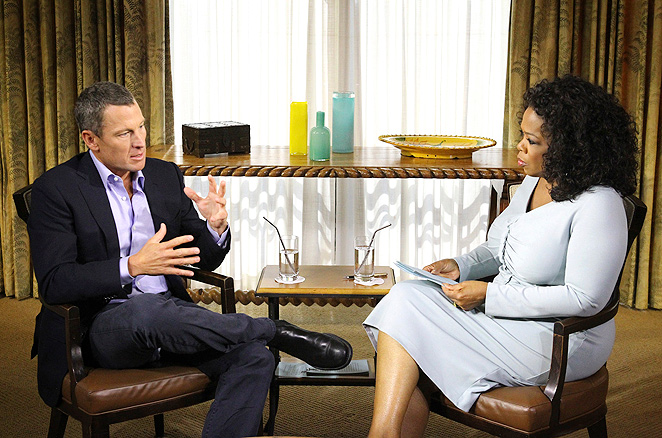 Having now confessed to Oprah about doping in order to win seven Tour de France titles, Lance Armstrong is obviously in a heap of legal troubles. Most of those seem to involve his perjury (criminal), defamation of others when he called them liars for calling him a cheat (civil), and a slew of contractual issues regarding his sponsors.
Having now confessed to Oprah about doping in order to win seven Tour de France titles, Lance Armstrong is obviously in a heap of legal troubles. Most of those seem to involve his perjury (criminal), defamation of others when he called them liars for calling him a cheat (civil), and a slew of contractual issues regarding his sponsors.
Sports Illustrated gives a decent wrap-up of his legal woes, athletically, criminally and civilly.
But there is another aspect many might miss — by bringing defamation claims against others when they called him a cheat, and knowing that his lawsuits were bogus, he committed frauds on the courts themselves.
The operative case here is Chambers v. NASCO from the US Supreme Court. This decision observes that, independent of any particular statute or rule, a court has an “inherent power” to sanction for fraud or bad-faith conduct. This includes conduct undertaken “vexatiously, wantonly, or for oppressive reasons.”
That’s a pretty big catch-all provision. I suspect there will be a couple of pissed off judges out there who will have no problem using this rule (or similar state rules) to haul Armstrong before the court. And I expect that this won’t take all that long to happen.
“defamation of others when he called them liars for calling him a cheat (civil),”
To sue for defamation, don’t you have to prove that the defamatory statement caused damages? And how likely is it that you’d be damaged if you accused a sports figure of cheating and he accused you back of being a liar? Isn’t the sports figure accusing you of being a liar a “par for the course” sort of thing that most everyone ignores?
I’ve never heard of a rule that gives athletes immunity for defaming people.
Pingback: Lance Armstrong as litigant - Overlawyered
No, athletes are not immune from suits for libel or slander. However, the plaintiff needs to show damages. It may be difficult.
I am fascinated by the psychology that must have led him to this decision. Maybe I’m just underestimating the enormous scope of his wealth, but a back of the napkin calculation shows tens of millions of dollars he needs to pay back to sponsors who will inevitably file fraud claims, likely tens of millions more to the people he defamed and wrongfully sued, and then tens of millions more to his legal team, which includes both Williams Connolly and Keker Van Nest. His team probably runs about $10k an hour when they have a conference call.
If he’s not worth $200 million or more, then he may have just bankrupted himself, and opened himself to a truly painful decade of litigation on multiple fronts, watching his fortune waste away. Honor? Repentance? Pride? Attention?
One thing that will be interesting, for the lawyers that defend him on the breach of contract claims from his prior sponsors, is that those companies likely profited by having Lance be their pitchman.
Will fraud claims thus be subject to a set-off equal to the profits those companies made while sponsoring him? (How you would prove how much profit is attributable to him will be interesting, but I have to assume some analysis exists if they wanted to pay him big bucks.)
What if a sponsor gave him $5M, and reaped $10M in profits during that time attributable to him?
Can’t believe it’s taken this long to reach this point. And yeah, he might be paying back for this going into the grave.